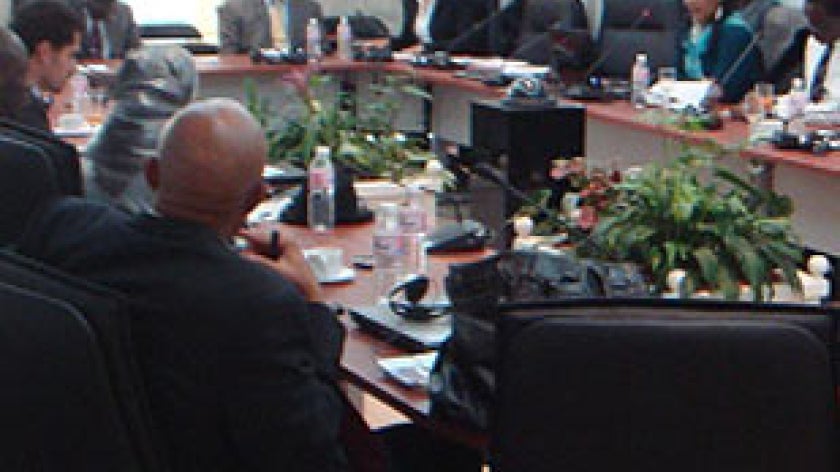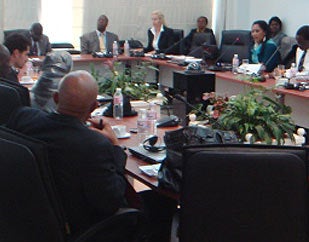

Participants engaged operational staff and task managers on how to improve accessibility to GEF environment funds through AfDB investments in client countries. The GEF Secretariat was represented by Sekou Toure, Advisor to the GEF CEO, and Mohamed Bakarr, Coordinator of the Land Degradation Focal Area.
Toure called on AfDB operational staff to “take advantage of substantial GEF grants and concessionary funding that is available to cover agreed incremental costs associated with transforming national or regional projects and programs into agreed global environmental benefits.”
As a GEF Agency, the AfDB has the opportunity to leverage its investment portfolio as a means of supporting countries who seek to implement the Conventions for the GEF serves as financial mechanism.
Toure noted that GEF holds a strong comparative advantage among international financial institutions given its robust results based management system,and retooled project cycle that should easily meet the expectations of the Bank’s operational sectors.
He added that using GEF resources would also enhance AfDB’s reputation at the corporate level given GEF’s reputation to encourage country–driven programming.
Both Toure and Bakarr made presentations on GEF-5 reforms and strategies under different focal areas: biodiversity, climate change, land degradation, ozone depleting substances, persistent organic pollutants and international waters. The presentations also included specific examples of approved projects to demonstrate the principles and practices of GEF operations, such as country-ownership, incremental reasoning, cost-effectiveness, and sustainability.
In her presentation, GEF-AfDB coordinator, Siham Mohamed-Ahmed, commented that the Bank has in factincreased its pipeline of projects in climate change, biodiversity, land conservation, and water management, among others, over the years, adding that on average, it was able to attract five US dollars for each one dollar GEF grant resource in co-financing.
Mohamed-Ahmed noted the current eight AfDB-approved projects estimated at USD $26 million would attract anothert USD 159 million in additional financing.
She also stressed that the AfDB has an achievable comparative advantage to mobilize a good share of this funding, particularly its capacity to work in the GEF focal areas, its field presence in most countries. In particular, this will be useful given that sustainable development is now considered a core cross-cutting issue for the Bank.
The workshop was opened by the Energy, Environment and Climate Change Department Director, Hela Cheikhrouhou, and chaired by the Environment and Climate Change Manager, Kurt Lonsway. The second day was devoted mainly to a “projects clinic” and one-on-one discussions between the GEF delegates and AfDB operational staff and task managers from the energy, transport, water, private sector, agriculture and health sectors.